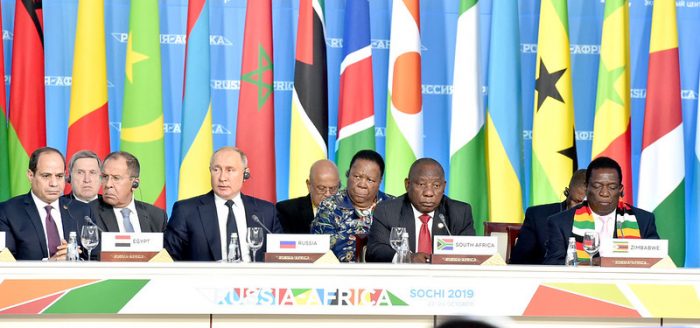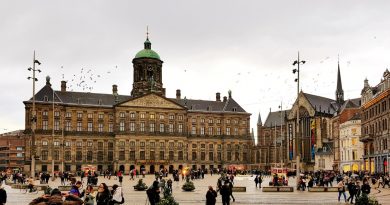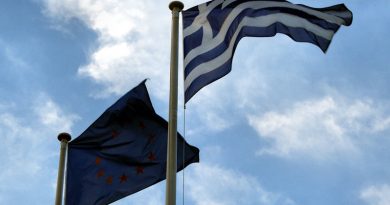Russia Looks to Exert Influence, Fund New African Development Projects
Natalie Sherman
Staff Writer
Last month, Russia hosted the first-ever Russia-Africa summit in Sochi. The summit was held in the Sochi Olympic Park, the former Sochi Olympic Village, and was attended by over 40 African leaders, reports The Sunday Times. Russia, Africa’s largest weapons supplier, showed the leaders Russian military equipment and weapons and hopes to bolster its exports to Africa.
Russia has a long history in Africa, dating back to the Soviet Era when the USSR invested large amounts of money in African development. The East African recalls that when Russia’s economy fell into disarray during the 1990s, Russia was no longer able to contribute to African development and maintained a more inward focus for almost two decades.
Now, as Russia seeks to increase its global influence and compete with great powers such as the United States and China, it once again turns to Africa for partnerships. Vladimir Putin’s Russia took very little interest in Africa during the 2000s, but in the wake of Western sanctions over its takeover of Crimea, Russia now finds it necessary to seek out new geopolitical friends.
Many African leaders have ties to Russia, with several even completing their education there. Olga Kulkova, a senior research fellow at the Institute for African Studies of the Russian Academy of Sciences told Foreign Policy, “There are still some elites across the continent that have ties to the Soviet era, but the next generation doesn’t have the same links to Russia as before. So we need to take the opportunity to return now while there are still people with connections.”
Moscow revealed its full intentions for Africa when The Guardian leaked documents obtained by the Dossier Center. These documents appear to show that Moscow’s goal is to decrease the influence of powers such as the United States and former colonial powers such as the United Kingdom and France. This dossier is very telling and even seems to include many of the same tactics employed against anti-Putin opposition. One memo mistakenly said Russia instead of Sudan in a few instances.
The dossier makes it clear that Russia is attempting to scale up its influence in at least thirteen African countries. According to The Guardian, it intends to do this by ‘building relations with existing rulers, striking military deals, and grooming a new generation of ‘leaders’ and undercover ‘agents.’’ This is all part of Moscow’s ultimate ambition of turning the region into a strategic hub.
By far the most important person involved with Russia’s current activities in Africa is Yevgeny Prigozhin, a businessman with close ties to Putin. The United States government indicted Prigozhin for his supposed role in running a troll farm targeting the 2016 US presidential election. Many subsequent world elections have been targeted since, including multiple African elections.
Prigozhin is also said to run the infamous mercenary force Wagner, which is currently engaged in several conflicts on the African continent and has previously been involved in the conflicts in both Syria and Ukraine. The Stanford Internet Observatory notes that Wagner has been providing security services and conscript forces in both Sudan and the Central African Republic.
Many African leaders view Russia’s interest in their continent positively. Mahmoud Ali Youssouf, the foreign minister of Djibouti, asked The New York Times, “Why shouldn’t we try a new approach? A new message? Maybe Russia is an alternative.” This mindset stems from the past disasters that have accompanied Western involvement in Africa and the Middle East. No leader wants to suffer a fate like Saddam Hussein or Moammar Ghaddafi, and Russia’s historically anti-regime change stances are attractive to leaders in conflict zones, such as Sudan or the Central African Republic.
However, great power politics in Africa is far from a zero-sum game. China and the United States continue to have an enormous influence on the African continent, and many former colonies still have strong ties to the nations who were once colonizers. Additionally, African nations have their own preferences for countries they would like to do business with. Foreign Policy shared data that showed China and the US are still seen as more desirable geopolitical partners than Russia. Russia has a long way to go before it can match the influence it had in Africa during the Cold War.




